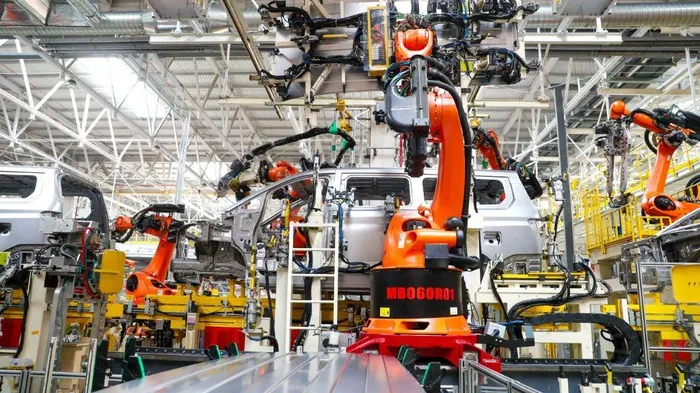Automotive sector struggles with declining production and sales amid economic concerns
MANUFACTURING

National Association of Automotive Component and Allied Manufacturers (NAACAM) have raised concern about the negative contribution of the automotive sector indicated during the Stats SA release of Manufacturing Production and Sales May 2025 on Thursday.
Image: Costfoto / NurPhoto via AFP.
The National Association of Automotive Component and Allied Manufacturers (NAACAM) has voiced serious concerns regarding the automotive sector's negative performance, highlighted in the recent manufacturing production and sales report released by Statistics SA for May.
Although the broader manufacturing landscape showed a modest increase of 0.5% compared to May 2024, the automotive segment—specifically motor vehicles, parts and accessories, and other transport equipment—recorded a stark contraction of 6.7%, contributing negatively to the overall figures with a loss of 0.6 percentage points.
Stats SA indicated that this decline in the automotive sector reflects more than just temporary fluctuations, as it is compounded by a mixture of enduring challenges that have plagued the industry.
Renai Moothilal, CEO of NAACAM, said that the decline in production within the automotive sector during May was attributed to a combination of factors.
“These include disruptions in export demand, particularly from key trading partners such as the United States, where recent tariff measures have begun to weigh on order volumes,” Moothilal said on Friday.
“Persistent challenges related to logistics inefficiencies, global demand and input cost pressures also continue to affect output levels.”
Moothilal added that NAACAM has always been an advocate of continued and inclusive growth within the South African automotive sector.
He said this included growth that deepens local value addition, expands supplier participation, and drives employment creation.
“While the current data reflects pockets of resilience, it also highlights vulnerabilities that must be addressed through collaborative efforts between industry stakeholders and government, particularly around assembly volumes, trade access, infrastructure reliability, and localisation plus employment support in the supplier base.”
Moothilal said that the fact that the motor vehicles, parts, and accessories division recorded a 3.9% increase in sales and contributed positively to overall manufacturing performance was an encouraging sign.
“It demonstrates that, despite production challenges, the sector continues to show resilience driven largely by robust aftermarket demand, growth in export markets outside the USA, and continued investment in high performing model lines,” he said.
“However, sustained growth will depend on improving operating conditions, maintaining competitiveness, and suitably adjusted policy, in light of shifting global trade dynamics.”
Earlier this month, the Automobile Business Council (Naamsa) said that South African new vehicle sales demonstrated unwavering domestic momentum in the first half of 2025, closing this period strong.
Aggregate new vehicle sales climbed to reach 47 294 units in June, up 7 444, or 18.7%, from the 39 850 units sold the same month a year ago, reflecting a sustained and broad-based recovery in consumer and fleet demand.
Naamsa CEO Mikel Mabasa said that strong consumer demand, supported by positive economic fundamentals, helped the automotive sector deliver impressive growth amid global turbulence.
“At Naamsa, we recognise this momentum as a reflection of supportive macro-economic policy choices and a highly adaptive industry,” Mabasa said.
“As 2025 marks a critical inflection point for the sector, we look forward to progressive policy support measures as part of the South African Automotive Masterplan 2035 Review that sustains this growth trajectory, enhances competitiveness, and drives deeper inclusion across the value chain.”
Efficient Group economist Dawie Roodt said that these numbers were not good news for South Africa.
“I think chances are very good that the South African economy could already be in a recession, or could be heading for a recession, but very, at the very least, very weak economic growth,” Roodt said.
“And on top of that, if you add things like tariffs and uncertainty and things like that, I'm afraid this is not going to be a good year for the South African economy.”
BUSINESS REPORT